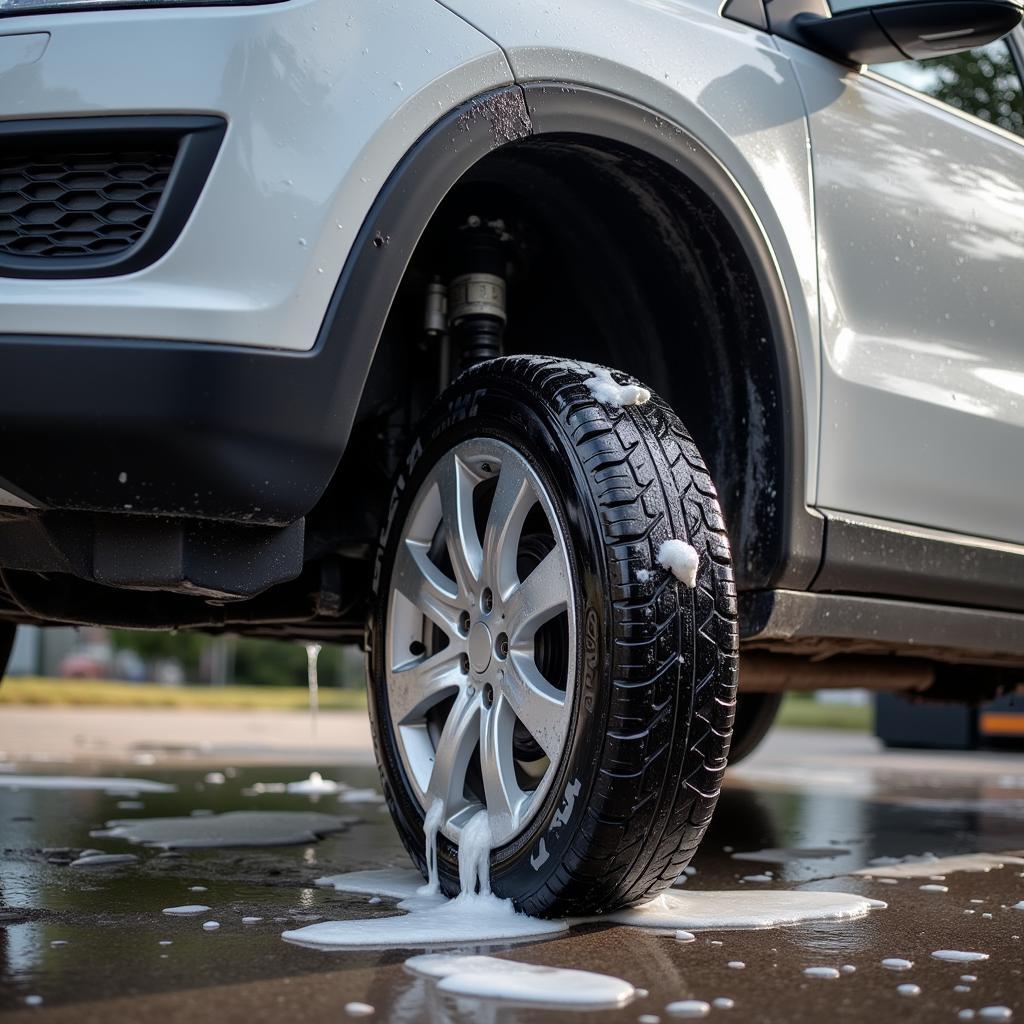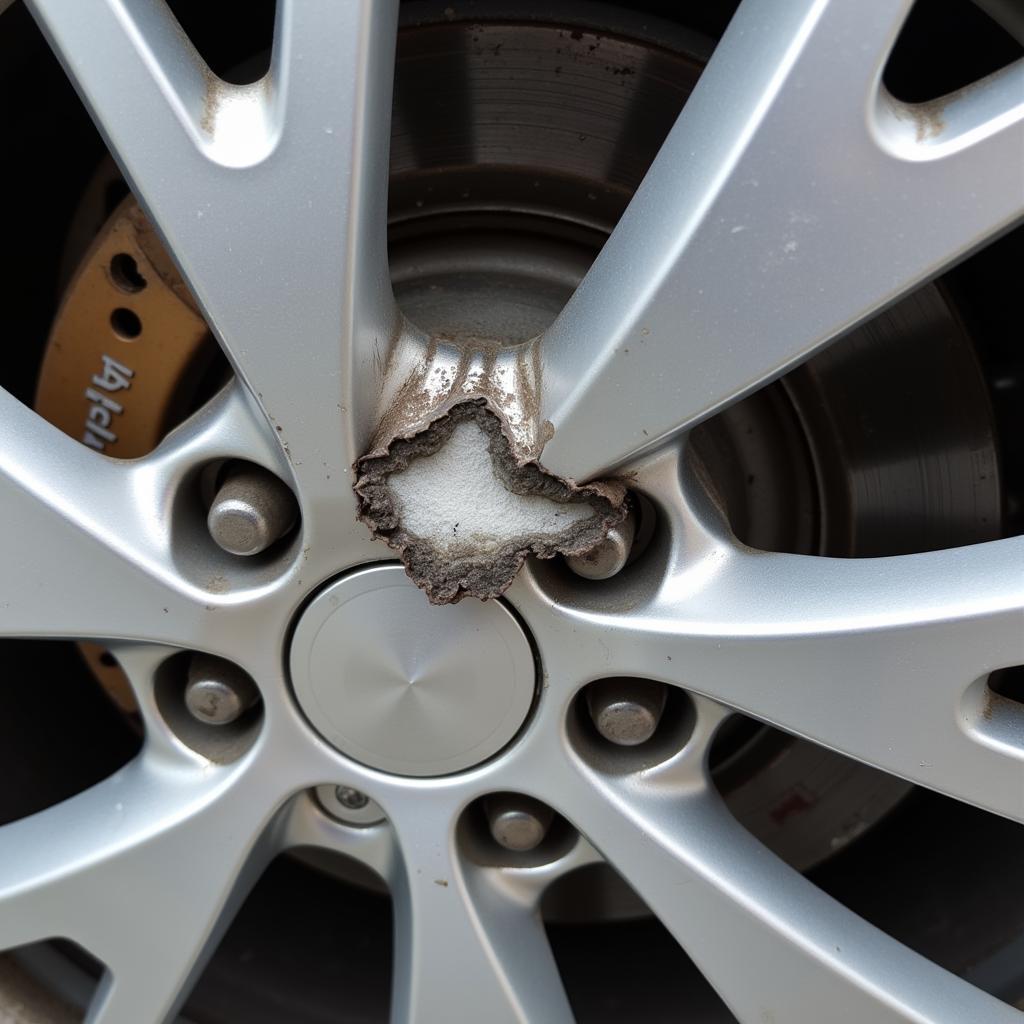Rust is a common enemy of car owners, and even minor rust can quickly escalate into a major problem if left untreated. This guide provides a comprehensive approach to fixing minor rust on your car, enabling you to protect your vehicle’s appearance and structural integrity. best fix up cars Learn how to tackle those small rust spots before they become big headaches, saving you time and money in the long run.
Understanding the Enemy: Why Does Rust Occur?
Rust, scientifically known as iron oxide, is a reddish-brown coating that forms on iron or steel when exposed to oxygen and moisture. This electrochemical process weakens the metal, compromising its strength and appearance. On cars, rust often starts in areas prone to moisture accumulation, such as wheel wells, rocker panels, and around trim pieces.
How Do I Identify Minor Rust on My Car?
Minor rust often manifests as small, superficial spots or blisters on the paint surface. You might also notice a slight roughness or discoloration in the affected area. Early detection is key to preventing further damage. Regularly inspect your car, paying close attention to areas prone to moisture.
Essential Tools and Materials for Fixing Minor Rust
Before you start fixing minor rust, gather the necessary tools and materials. This includes safety gear like gloves and eye protection, sandpaper (various grits), rust converter, primer, paint that matches your car’s color, clear coat, and masking tape. Having everything ready will streamline the repair process.
Step-by-Step Guide to Fix Minor Rust on Car
-
Clean the Area: Thoroughly wash the rusted area with soap and water, then dry it completely. This removes dirt and debris, allowing for better adhesion of the rust converter and paint.
-
Sand the Rust: Using sandpaper, carefully sand the rusted area until the bare metal is exposed. Start with a coarser grit (e.g., 80-grit) and gradually move to a finer grit (e.g., 220-grit) for a smooth surface.
-
Apply Rust Converter: Apply a rust converter to the sanded area, following the manufacturer’s instructions. The rust converter chemically transforms the rust into a stable compound, preventing further corrosion.
-
Prime the Area: Once the rust converter has dried, apply a thin coat of automotive primer to the area. Primer provides a smooth surface for the paint to adhere to and further protects against rust.
-
Paint and Clear Coat: Apply several thin coats of paint that matches your car’s color, allowing each coat to dry before applying the next. Finish with a clear coat for added protection and shine. how do i fix my car mirror
Preventing Future Rust Formation
Preventing rust is always better than curing it. Regularly washing your car, especially during winter months when salt is used on roads, is crucial. Applying a wax coating can also provide an additional layer of protection. how much to get relay fixed on car
 Preventing Rust Formation on Car
Preventing Rust Formation on Car
What if the Rust is More Extensive?
For more extensive rust damage, professional help is recommended. Body shops have the expertise and equipment to handle complex rust repairs, ensuring a long-lasting solution. cost to get speakers fixed in a car
Conclusion: Keeping Your Car Rust-Free
Fixing minor rust on your car is a manageable task that can save you from costly repairs down the road. By following the steps outlined in this guide and being proactive in preventing rust formation, you can keep your car looking its best and maintain its structural integrity. For any further assistance, feel free to connect with us at AutoTipPro. You can reach us at +1 (641) 206-8880 or visit our office at 500 N St Mary’s St, San Antonio, TX 78205, United States. We’re always happy to help you Fix Minor Rust On Car and other automotive issues. how to fix broken car window motor near 77060
FAQ:
- How can I tell if the rust is minor or major?
- What type of rust converter should I use?
- Do I need to prime before painting?
- Can I fix rust on my car myself?
- How often should I wash my car to prevent rust?
- What is the best way to protect my car from rust in winter?
- Where can I find a qualified professional to fix extensive rust damage?





Leave a Reply